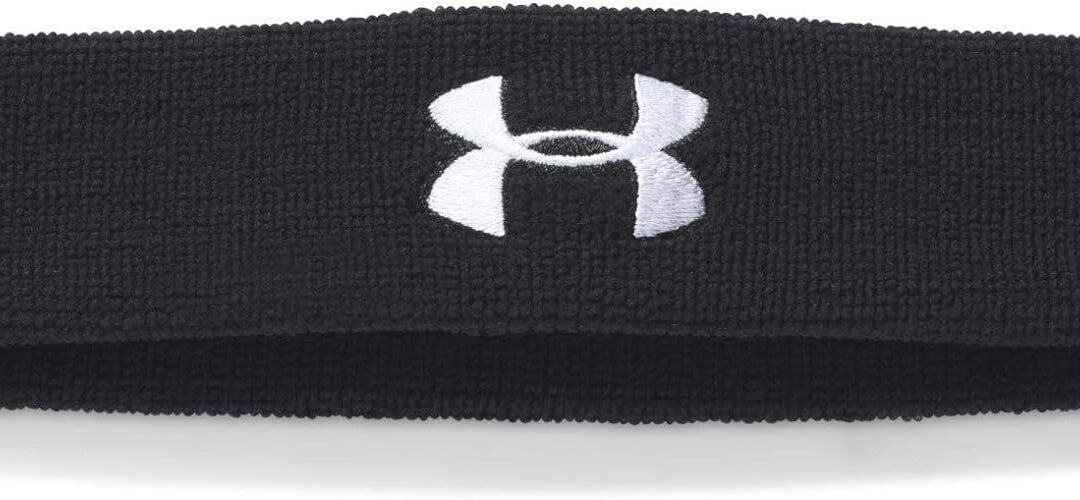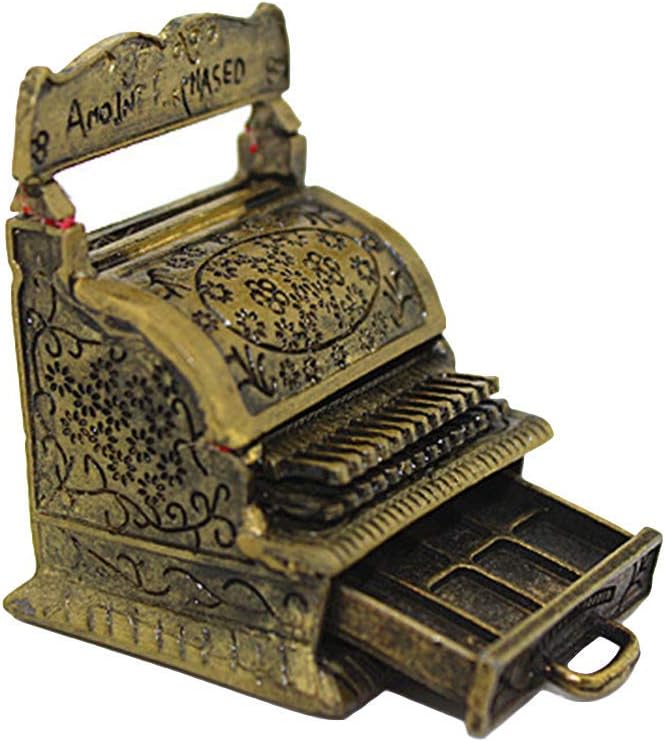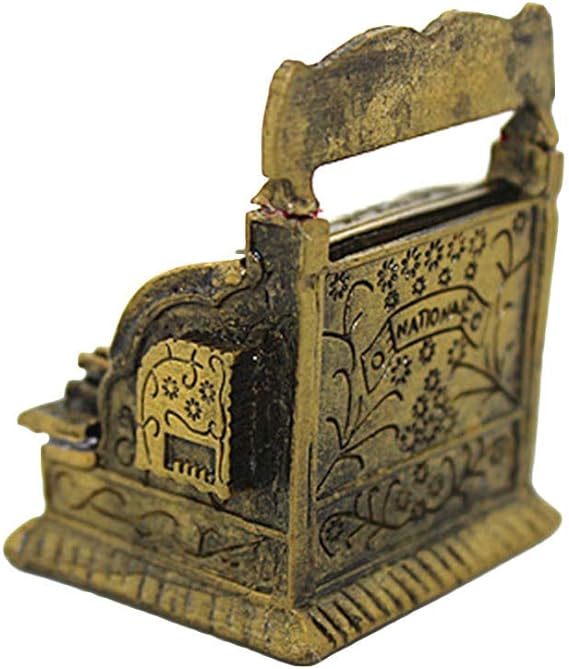Discover the benefits of sweatbands for your fitness routine. Enhance your performance and stay comfortable with these stylish and functional accessories.


Welcome to the world of vintage cash registers! In this article, we will take a trip down memory lane and explore the fascinating history of these iconic machines. From their invention in the late 19th century to their present-day collectability, vintage cash registers have a special place in our hearts and homes. So, let’s dive in and discover the charm and nostalgia of these historic artifacts.
The cash register, as we know it today, was invented by James Ritty in 1879. Ritty was a saloon owner in Dayton, Ohio, who wanted a device to prevent his employees from pilfering cash from the till. He partnered with his brother John Ritty and together they created the “Incorruptible Cashier” – the first mechanical cash register.
2. How Vintage Cash Registers Worked
Vintage cash registers operated using a series of mechanical gears and levers. When a sale was made, the cashier would press the corresponding keys for the items purchased, and the cash register would calculate the total amount. The cash drawer would then open, allowing the cashier to give change to the customer. The mechanical nature of these cash registers made them reliable and durable, which is why many vintage models are still functional today.
There were several types of vintage cash registers produced over the years. Some of the most popular ones include:
The National Cash Register Company, known as NCR, was one of the leading manufacturers of cash registers in the late 19th and early 20th centuries. NCR cash registers are highly sought after by collectors due to their intricate designs and craftsmanship.
Royal cash registers were known for their elegant designs and high-quality construction. They were often found in upscale establishments and are now considered collector’s items.
Underwood cash registers were known for their simplicity and functionality. They were popular in small businesses and are still admired for their minimalist design.
Collecting vintage cash registers has become a popular hobby for many enthusiasts around the world. These machines offer a glimpse into the past and are a tangible piece of history. Here are some tips for starting your own collection:
Before diving into collecting vintage cash registers, it’s important to do your research. Learn about different makes and models, their value, and their availability. Join online forums and connect with other collectors to gain insights and knowledge.
When purchasing a vintage cash register, pay close attention to its condition and authenticity. Look for original paint, intact parts, and functioning mechanisms. Avoid heavily restored or modified cash registers, as they may have lost their historical value.
Once you have a vintage cash register in your collection, it’s important to properly display and preserve it. Keep it away from direct sunlight, excessive humidity, and temperature fluctuations. Regularly clean and maintain the cash register to ensure its longevity.

Vintage cash registers can vary greatly in value depending on factors such as rarity, condition, and desirability. Some cash registers may be worth a few hundred dollars, while others can fetch thousands of dollars at auction. It’s always a good idea to consult with experts or appraisers to get an accurate assessment of the value of your vintage cash register.
If you’re interested in starting your own collection or simply want to own a piece of history, there are several places where you can find vintage cash registers:
Antique stores often have a selection of vintage cash registers available for purchase. Visit local antique shops or explore online marketplaces specializing in antiques to find the perfect addition to your collection.
Online auction websites such as eBay are a treasure trove for vintage cash register enthusiasts. You can often find a wide variety of models and price ranges, allowing you to choose based on your preferences and budget.
Estate sales can be a great place to find vintage cash registers, as well as other antique items. Keep an eye out for estate sale listings in your area and be prepared to dig through a variety of items to find hidden gems.
If you come across a vintage cash register that is in need of some TLC, you may consider restoring it to its former glory. However, restoration should be approached with caution, as it can affect the value and authenticity of the cash register. Here are some tips for restoring vintage cash registers:
Before starting any restoration work, thoroughly research the specific make and model of the cash register. Look for original manuals, schematics, and documentation to guide you through the restoration process.
If you’re unsure about restoring the cash register yourself, it’s best to seek professional help. There are experts and restoration specialists who specialize in vintage cash registers and can ensure the preservation of its historical value.
When restoring a vintage cash register, aim to preserve as much of its originality as possible. Avoid over-restoration or modification that may detract from its authenticity. Retain original paint, decals, and parts whenever possible.
As technology advances and digital payment systems become more prevalent, the use of cash registers, including vintage ones, is on the decline. However, the nostalgia and historical significance of cash registers will always hold a special place in the hearts of collectors and enthusiasts. These machines are a tangible reminder of a bygone era and serve as a testament to human ingenuity.

– Nostalgic and charming piece of history
– Functional and durable machines
– Intricate designs and craftsmanship
– Potential for collecting and investment
– Can be expensive, especially for rare or highly sought after models
– Limited functionality compared to modern cash registers
– Difficulty in finding replacement parts and repair services
– Requires proper maintenance and preservation to retain value
“I love my cash register! It adds a unique touch to my home decor and sparks conversations with guests.” – Sarah M.
“The craftsmanship of vintage cash registers is truly impressive. I enjoy collecting different models and learning about their history.” – Mark R.
“I bought a vintage cash register for my antique shop, and it’s a real attention-grabber. Customers love seeing it in action.” – Emma S.
“I had to restore my vintage cash register, and it was a labor of love. The end result was worth it, and I’m proud to display it in my collection.” – John T.
Q: How much do cash registers usually cost?
A: The price of vintage cash registers can vary greatly depending on factors such as rarity, condition, and desirability. Prices can range from a few hundred dollars to several thousand dollars.
Q: Are cash registers still functional?
A: Many vintage cash registers are still functional today, thanks to their mechanical design and durable construction. However, it’s important to ensure proper maintenance and occasional repairs for optimal functionality.
Q: Where can I find replacement parts for cash registers?
A: Replacement parts for vintage cash registers can be difficult to find, but there are specialized vintage cash register restoration services and online marketplaces that offer a variety of parts.
Q: Can I use a cash register in my business?
A: While vintage cash registers can add a unique touch to a business setting, they may not be practical for everyday use. Modern POS systems offer more advanced features and functionality.

Vintage cash registers are more than just functional machines – they are pieces of history that evoke a sense of nostalgia and charm. Whether you’re a collector or simply appreciate the beauty of these mechanical marvels, vintage cash registers offer a unique glimpse into our past. So, embrace the history and start your own journey into the world of cash registers!
While vintage cash registers hold a special place in our hearts, it’s important to acknowledge the evolution of these machines over the years. As technology advanced, cash registers became more sophisticated and automated. Here are some key milestones in the evolution of cash registers:
In the early 20th century, electric cash registers were introduced, replacing the manual operation of mechanical cash registers. These new models featured electric motors and improved functionality, making transactions faster and more efficient.
In the 1970s, electronic cash registers emerged, incorporating microprocessors and digital displays. These cash registers offered advanced features such as barcode scanning, inventory management, and sales reporting. Electronic cash registers revolutionized the retail industry, streamlining operations and providing greater accuracy.
In recent years, cash registers have been largely replaced by Point of Sale (POS) systems. These systems combine hardware and software to provide a comprehensive solution for managing sales, inventory, and customer data. POS systems often include touchscreen displays, barcode scanners, and integrated payment processing.
Vintage cash registers have not only played a functional role in businesses but have also become cultural icons. They symbolize a simpler time when transactions were conducted in person, and cash was king. cash registers have appeared in movies, television shows, and advertisements, further solidifying their place in popular culture.
Their intricate designs and craftsmanship have made them highly desirable among collectors and interior decorators. Vintage cash registers are often used as decorative pieces in homes, restaurants, and retail stores, adding a touch of nostalgia and elegance to the ambiance.
As we reflect on the history and significance of cash registers, it’s clear that these machines have left a lasting legacy. They represent a time when business transactions were conducted with a personal touch, and the sound of a cash register bell signaled a successful sale.
While vintage cash registers may no longer be the primary method of processing transactions, their charm and historical value continue to captivate collectors and enthusiasts. These machines serve as reminders of our past and the ingenuity of inventors like James Ritty, who revolutionized the way we handle money.
So, whether you’re a collector, a history enthusiast, or simply appreciate the aesthetics of vintage machinery, consider adding a cash register to your collection or decor. These timeless artifacts will continue to evoke a sense of nostalgia and admiration for generations to come.